Analyzing Du Bois' Restoration of African Americans in Racial Justice
VerifiedAdded on 2023/06/13
|5
|1207
|211
Essay
AI Summary
This essay delves into W.E.B. Du Bois's contributions to the struggle for racial justice in America, particularly focusing on his work, Black Reconstruction. Du Bois argued that Reconstruction, despite its challenges, represented a step forward for American democracy due to the self-emancipation efforts of Black individuals through resistance and collective action. This marked the emergence of Black agency, a concept central to understanding Reconstruction's significance in American historiography. The essay further explores Du Bois's Marxist perspective, highlighting the relationship between emancipation, slavery, and capitalism, where Black labor played a crucial role in shaping social structures and industries. Du Bois emphasized the revolutionary nature of Black resistance against slavery and its potential to challenge capitalism, as evidenced by events like the West Coast Waterfront Strike of 1934. Despite the initial lack of recognition for Black Reconstruction, its radical ideas, such as Black self-liberation during the Civil War, influenced later scholars. The essay concludes by noting that while Du Bois's work demonstrated that post-liberation South did not devolve into economic or political chaos, the rise of American capitalism saw the exploitation of black people through increasingly brutal methods.
1 out of 5
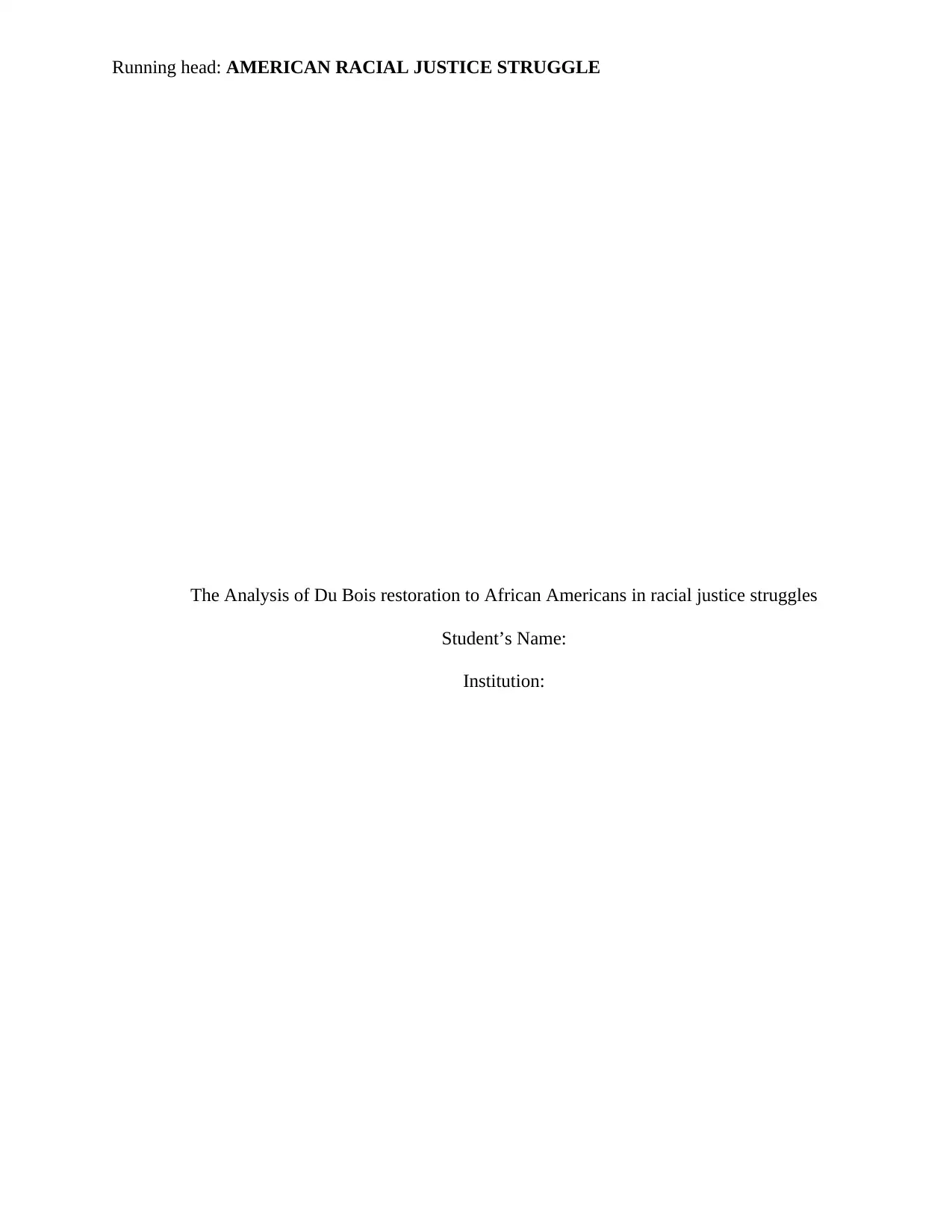
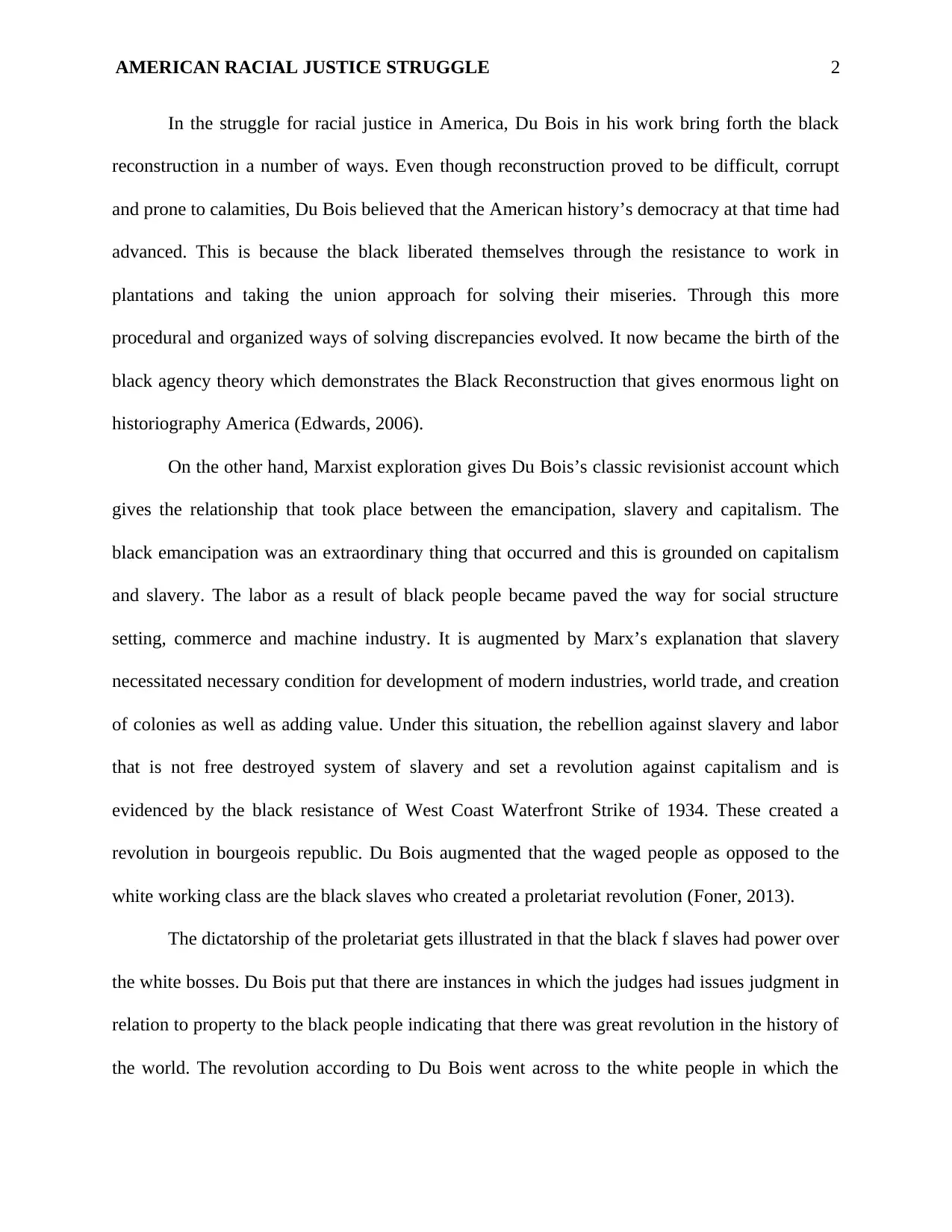
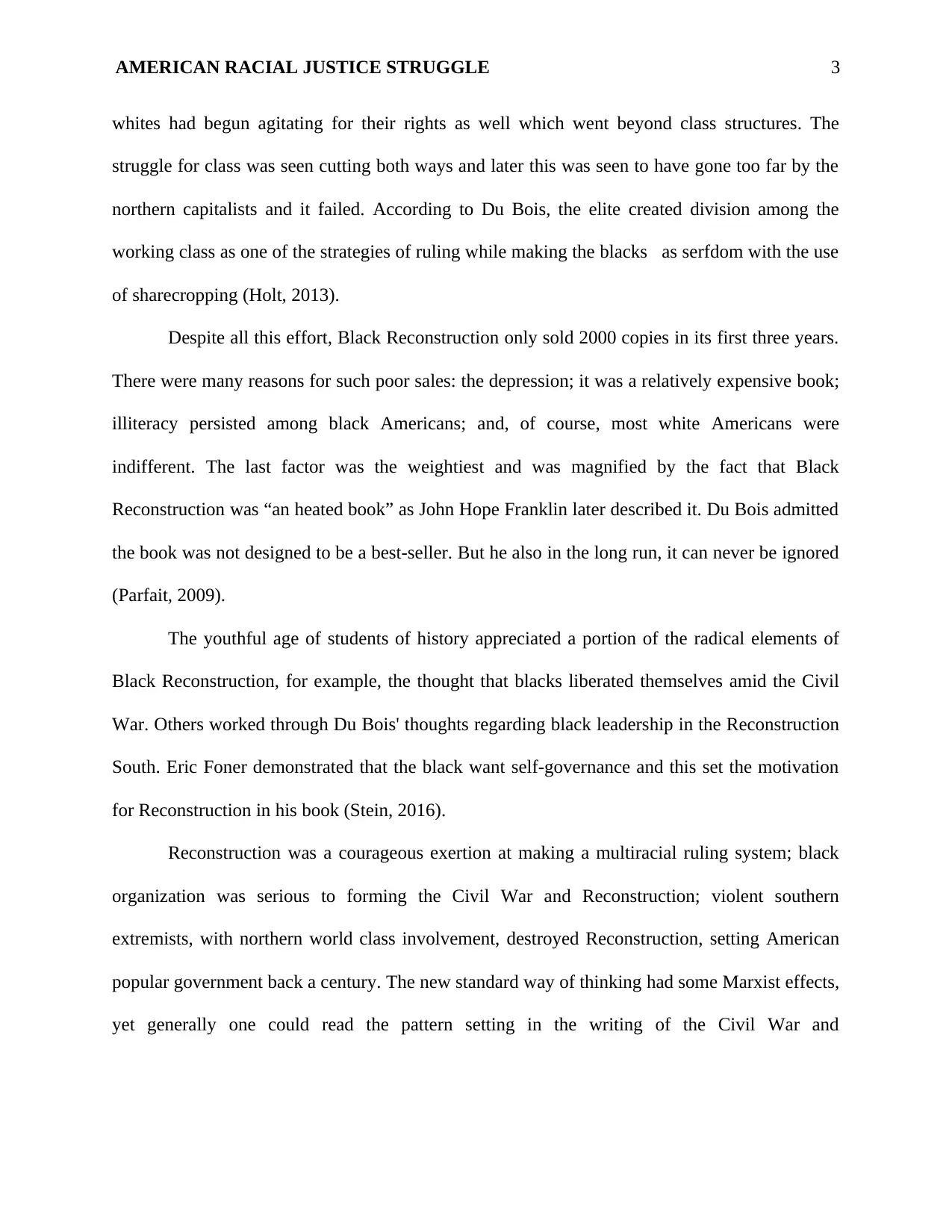

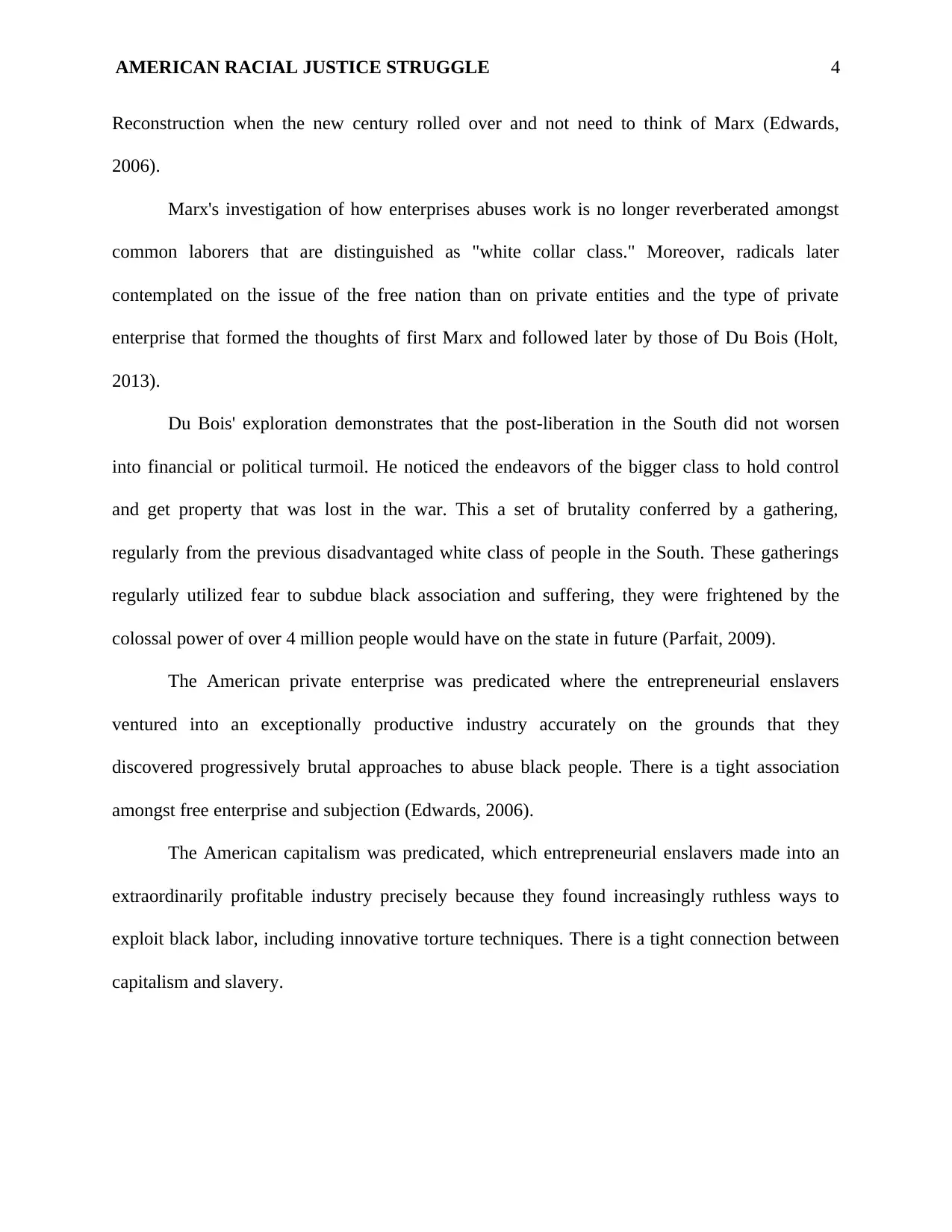
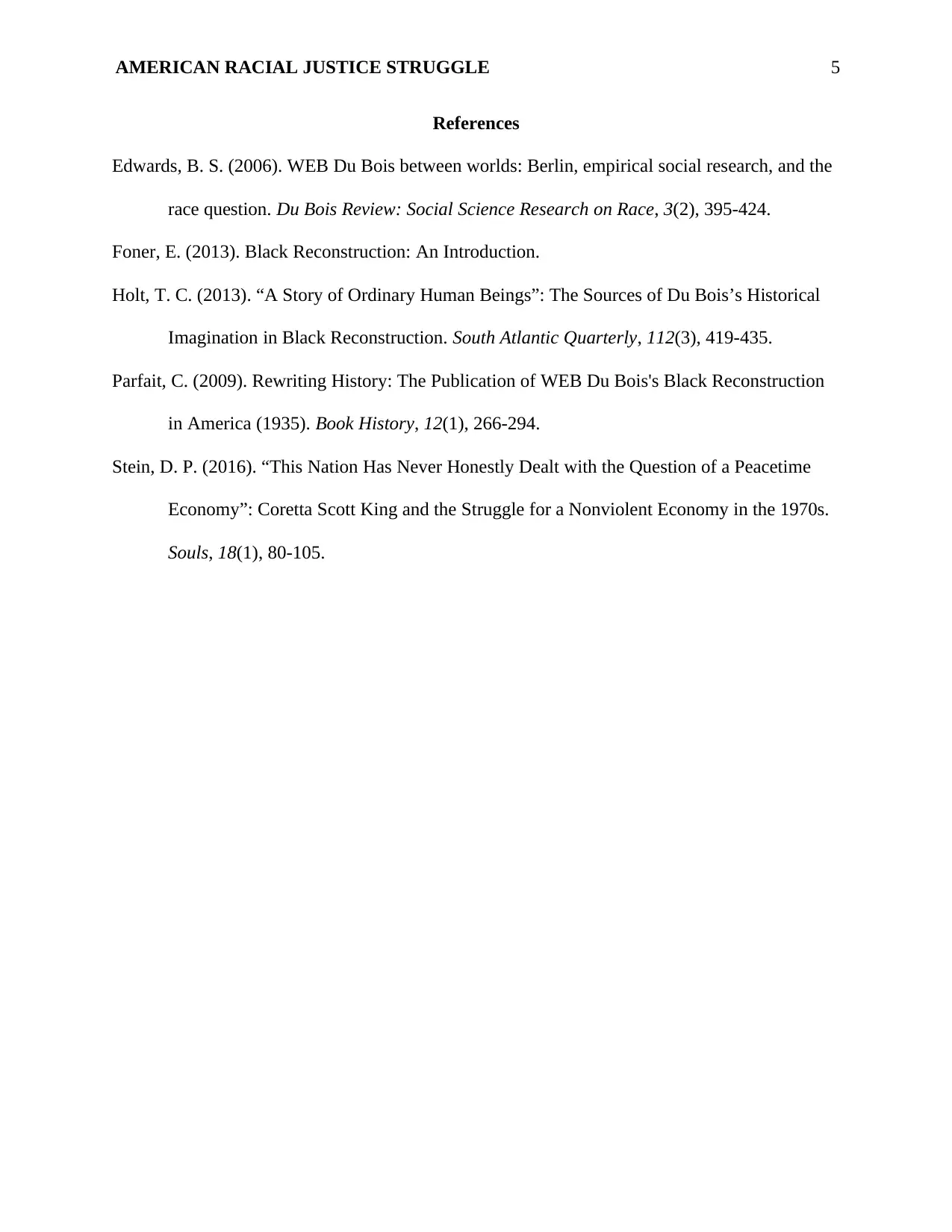





![[object Object]](/_next/static/media/star-bottom.7253800d.svg)